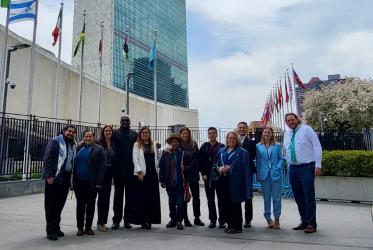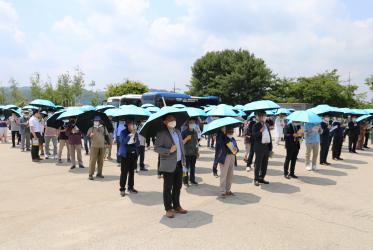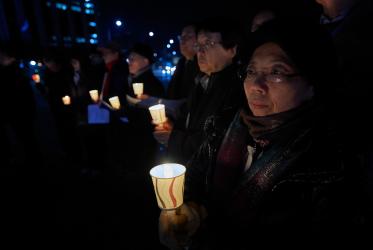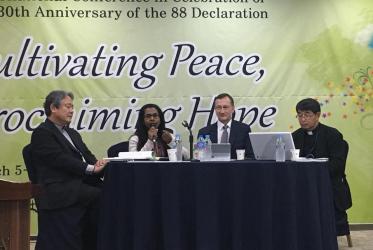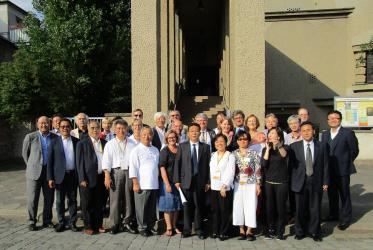Displaying 1 - 20 of 23
WCC welcomes “powerful sign of hope” on Korean Peninsula
08 March 2018
WCC Executive Committee issues statement on climate justice
25 November 2016
WCC mourns the death of Leopoldo Niilus
10 February 2015
Towards accessible and inclusive societies and churches in Latin America
15 September 2014
Use of armed drones condemned by WCC
13 February 2014
